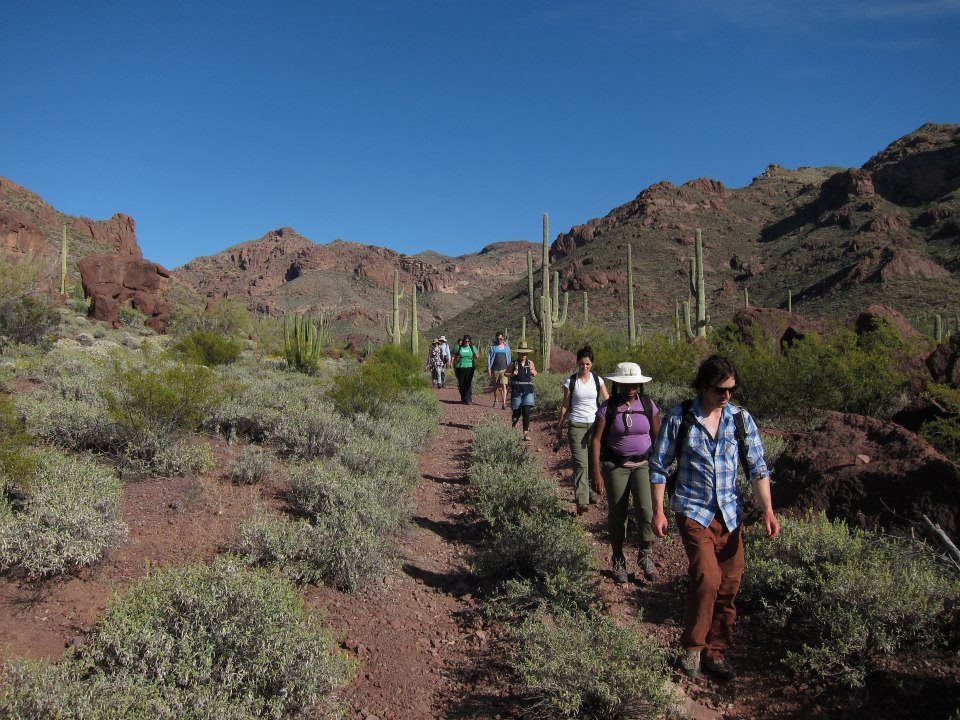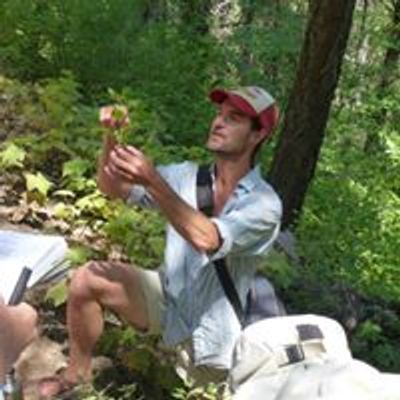
Advertisement
Edible & Medicinal Flora of the California Deserts: A Bioregional Exploration of the Sonoran, Mojave, and Great Basin
3-Month Springtime Field Study Program (Spring 2023)
The state of California is home to three of the four North American deserts: the Sonoran, Mojave, and Great Basin. And while many perceive this vast arid expanse to be a barren wasteland devoid of biological diversity, this really couldn't be further from the truth. In fact, the California deserts are a virtual treasure trove of notable edible and medicinal plant species, and in good years the spring wildflower bloom is TRULY a sight to behold! Our program kicks off below sea-level near the Mexican border and will move progressively higher in elevation and further north with each month, ultimately terminating at the Owens Valley in the shadow of towering Sierran peaks. The spring season, before the searing heat of summer sets in, is the ideal time of year to explore this majestic landscape of hidden valleys and rugged desert mountains. Our travels will take us through a great diversity of plant communities, including: salt bush scrub, creosote bush scrub, sagebrush scrub, Joshua tree woodland, pinyon-juniper woodland, and even desert marshland and riparian corridors. This is a land of eerie and desolate enchantment, and a place which offers rich rewards to those who come to know and appreciate its stark and timeless beauty.
Join us on this journey of discovery as we follow the plants through the spring season while learning about their many historical and contemporary uses. Some notable edible & medicinal plants we're likely to encounter on our weekend excursions include: Yerba Santa, Milkweed, Yerba Manza, Creosote Bush, American Licorice, Southwestern Verbena, White Sage, Agave, Sugar Bush, Mormon Tea, Desert Lavender, Algerita, Chia, Jojoba, Honey Mesquite, Desert Willow, Prince's Plume, Stream Orchid, Indian Tobacco, Banana Yucca, Sagebrush, Pinyon Pine and many others! We’ll spend our days hiking and botanizing while reserving evenings for interactive hands-on workshops, relaxing with friends around the fire, not to mention camping under a blanket of shimmering stars.
This interdisciplinary foundational course will engage students on 3 levels:
1. Field Study
2. Hands-On Workshops
3. Online Presentations/Pre-Class Reading Assignments
The program is structured around two main themes: Seasonal Plant Study & Bioregional Field Exploration. Meaning, we will focus our attention on the most distinctive plants (and plant communities) found throughout the region while following the peak bloom season for each unique floristic zone. The goal of which is to give the student solid foundational instruction on the identification and use of the primary edible/medicinal plants found growing throughout the Sonoran, Mojave, and Great Basin Deserts. Our study will emphasize a dynamic sensory awareness of the plants via close observation, touching, tasting, and smelling. This comprehensive, full immersion botanical intensive should prove to be insightful and rewarding for anyone interested in knowing more about the unique (and often under-appreciated) flora of the American Southwest.
3 Tiers of the program:
The course is generalist by design, and holds as its central premise that a contextual approach to understanding both edible and medicinal plants will be the most useful for the student in the long run. The 3 tiers of the program will include the following class subjects and activities:
I. Field Study
• Three 3-day camping trips
• Numerous herb walk explorations through a variety of unique plant habitats and elevation zones
• Field taxonomy/plant ID instruction
• Desert plant communities study
• Natural history of the California deserts
II. Hands-On Workshops
• Herbal pharmacy (teas/oils/salves/tinctures)
• Medicinal plant harvesting and processing methods (along with legal/ethical guidelines)
• Seasonal wild edible plant harvest/preparation
III. Online Presentations/Pre-Session Reading Assignments
In order to augment our field studies and help prepare students for each new session (and bioregion), Powerpoint presentations will be provided for viewing each month while being paired with reading assignments from the required texts. Topics will include:
• Botany concepts & botanical terminology
• California plant family recognition strategies
• Materia medica (medicinal plant uses)
• Edible plant uses
• Plant toxicology (poisonous plant study)
• Regional ethnobotany
• Rare & endangered plants of the California deserts
2023 Course Schedule
Class will meet one weekend a month for a total of 3 months. A total of 60 class hours.
Monthly Sessions
(Arrival on Thursday night optional)
Friday: 10am-6pm
Saturday: 9am-5pm
Sunday: 9am-5pm
Session Dates/Locations:
Field classes will occur throughout Southern California in the general vicinity of the following towns/cities: Ocotillo, CA, Baker, CA, and Lone Pine, CA (all within approx. 3.5 hours drive from Los Angeles, CA). Inquire about carpooling options.
Session 1: March 10-12 (2023)
Sonoran Desert
Near Ocotillo, CA
Session 2: TBD
Mojave Desert
Near Baker, CA
Session 3: TBD
Great Basin Desert
Near Lone Pine, CA
Click on the following links to view pictures of some representative plants and landscapes of the California deserts:
https://www.facebook.com/media/set/?set=a.342355353805.149939.83336233805&type=3
https://www.facebook.com/media/set/?set=a.498414093805.259632.83336233805&type=3
https://www.facebook.com/media/set/?set=a.10150442479708806.352879.83336233805&type=3
Course Fees
$635 Early Bird Discount (before February 1 deadline)
$685 Full tuition (after February 1 deadline)
Tuition includes basic course materials fees.
Meals are not included.
Pre-registration is necessary to hold your space. We recommend that you register as early as possible, as many classes fill up in advance.
Refund Policy
Cancellations up to 5 weeks before the course begins will be refunded, excluding a $150 processing fee. No refunds will be given after that date.
To register, or for additional information, contact:
Instructor: Tellur Fenner
Email (preferred): [email protected]
Facebook page: https://www.facebook.com/bluewindschool/
Scope out our photo/video feed on Instagram:
https://www.instagram.com/bluewindschool/
Camping Info
The field trips will entail car-camping mainly in remote and primitive camping sites (no running water, showers, toilets, picnic tables, etc), though the lack of such conveniences is GREATLY outweighed by the stunning beauty and peaceful solitude of these locales. State-of-the-art backpacking gear is not necessary. Participants will need to be physically able to hike 3-6 miles/day in warm temperatures.
What to bring:
Tent, Sleeping Bag, Sleeping Pad
Clothes (for hot/cold weather)
Hiking Boots
Rain Gear
Hat/Sunscreen
Daypack
Food/Snacks
Camp Stove
Camp Chair
Swimming Suit
Flashlight
Water Bottles (4 quarts)
Firewood
Notebook/Camera
And most importantly...a sense of adventure!
Course Materials (not included in tuition fee):
Required Texts
"The Jepson Desert Manual" by Baldwin and others
“Medicinal Plants of the Desert and Canyon West” by Michael Moore
*”Botany in a Day” 6th Edition by Thomas Elpel
Total book cost: approximately $50
(Students not wishing to purchase the books are free to check them out from the library instead)
*(Note: we will purchase Botany in a Day as a class at a bulk discount)
Required materials
-Hand-lens (for plant ID) Cost: $10-35
Advertisement
Event Venue & Nearby Stays
Los Angeles, California, United States
